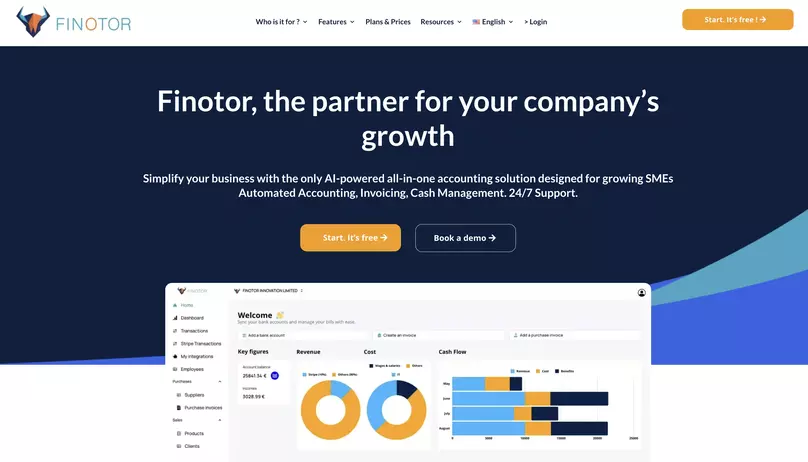Contents
- 1 Introduction to Fiscal Quarters
- 2 How Fiscal Quarters Impact Financial Management
- 3 Optimizing Business Performance with Fiscal Quarter Analysis
- 4 Leveraging Technology for Fiscal Quarter Management
- 5 How Fiscal Quarters Impact Financial Management
- 6 Optimizing Business Performance with Fiscal Quarter Analysis
- 7 Leveraging Technology for Fiscal Quarter Management
- 8 Optimizing Business Performance with Fiscal Quarter Analysis
- 9 Leveraging Technology for Fiscal Quarter Management
Introduction to Fiscal Quarters
What Are Fiscal Quarters?
Fiscal quarters are the building blocks of a company’s financial reporting system. They divide the fiscal year into four equal periods of three months each, and serve as a schedule for financial management, including budgeting, forecasting, and reporting. Understanding fiscal quarters is crucial for both internal stakeholders and external analysts who track a company’s performance. For additional insights into what constitutes a fiscal quarter, readers can refer to the comprehensive information provided at Investopedia and The Motley Fool.
The Importance of Fiscal Quarters in Business Planning
In business planning, fiscal quarters are indispensable. By breaking the year into smaller, manageable intervals, companies can evaluate their performance, make necessary adjustments, and set short-term goals that align with their long-term strategies. This periodic assessment also allows for timely decision-making, which is essential for maintaining a competitive edge in the market. Finotor’s all-in-one financial management solution, available at Finotor.com, helps businesses automate these processes, leveraging the structure of fiscal quarters to maximize efficiency and effectiveness.
Comparing Calendar Quarters and Fiscal Quarters
While calendar quarters align with the regular calendar year, starting in January, fiscal quarters are set according to a company’s financial year, which may not coincide with the calendar year. This distinction is important for several reasons, one of which is that it allows businesses to align their reporting with industry-specific peaks and troughs. The alignment of fiscal quarters can have a significant impact on financial analysis and investor perceptions, thus necessitating a clear understanding of the differences between the two systems.
How Fiscal Quarters Impact Financial Management
Financial Reporting and Fiscal Quarters
Financial reporting is directly influenced by the fiscal quarter structure, as public companies are required to provide quarterly reports to regulators and investors. These reports are vital for stakeholders to assess a company’s financial health and operational performance. Finotor’s platform streamlines the integration of financial data into these reports, simplifying the process and ensuring accuracy.
Budgeting and Forecasting by Quarter
Effective budgeting and forecasting are vital for sustaining and growing a business. Fiscal quarters provide a framework for setting financial targets and monitoring progress. With Finotor’s advanced tools that integrate AI and machine learning, companies can automate and refine their budgeting and forecasting processes, leading to more accurate and timely financial planning.
Tax Considerations for Fiscal Quarters
Understanding fiscal quarters is also important for tax planning and compliance. Companies need to be aware of the various tax obligations that may arise within each quarter and plan accordingly to avoid penalties and optimize tax positions. Finotor’s solution aids in this planning by offering features that help businesses track their tax liabilities and file their returns timely.
Optimizing Business Performance with Fiscal Quarter Analysis
Utilizing Fiscal Quarters for Strategic Planning
Fiscal quarters are not just for financial reporting—they are also a strategic tool. Companies use them to set performance benchmarks, allocate resources, and plan for growth. This disciplined approach to strategic planning is facilitated by Finotor’s comprehensive financial management solution, which provides insights and analytics tailored to each fiscal quarter.
Performance Tracking and the Role of Fiscal Quarters
Regular performance tracking is critical for any business, and fiscal quarters offer a consistent period for evaluation. This enables businesses to identify trends, adjust strategies, and make informed decisions. By leveraging Finotor’s platform, enterprises can easily monitor their performance against the goals set for each quarter.
Identifying Seasonal Trends with Quarterly Analysis
Seasonality can have a profound impact on a company’s operations and finances. Quarterly analysis helps businesses anticipate seasonal fluctuations and adapt their strategies accordingly. With Finotor, companies can analyze their financial data within the context of fiscal quarters to better predict and capitalize on these seasonal trends.
Leveraging Technology for Fiscal Quarter Management
Fiscal Quarter Management Tools for Businesses
Modern businesses need robust tools to manage the complexities of fiscal quarters. Finotor’s technology suite offers a range of features designed to help businesses efficiently manage their quarter-end activities, from closing books to consolidating financial statements.
How AI and Machine Learning are Transforming Quarter Management
The advent of AI and machine learning has revolutionized quarter management. Finotor harnesses these technologies to automate repetitive tasks, uncover insights from financial data, and predict future trends, thus enabling businesses to focus more on their core activities and less on the minutiae of financial management.
Integrating Financial Software with Fiscal Quarter Planning
Integration of financial software with fiscal quarter planning is key to achieving a seamless financial management process. Finotor’s platform offers integration capabilities with banking systems and platforms like Stripe and WooCommerce, which simplifies bank reconciliations and enhances the overall financial planning and analysis process for each fiscal quarter.
How Fiscal Quarters Impact Financial Management
Financial Reporting and Fiscal Quarters
For businesses, the fiscal year is split into four fiscal quarters, each providing a snapshot of performance and financial health. These quarters are critical for financial reporting, as they offer regular intervals to measure growth, profitability, and other key financial metrics. The use of fiscal quarters allows companies to regularly update investors, stakeholders, and regulatory bodies on their financial status. As detailed on Wikipedia, a fiscal year can vary between organizations, making it essential to understand the specific quarter dates when analyzing financial reports. The regular cadence of reporting each quarter aligns with the need for continuous financial oversight and strategic adjustment.
Budgeting and Forecasting by Quarter
Budgeting and forecasting are fundamental aspects of financial management, and they take on an added layer of precision when conducted on a quarterly basis. By dividing the fiscal year into quarters, businesses can set more immediate goals, track progress, and adjust forecasts based on the most current data. This granular approach to financial planning enables companies to respond swiftly to market changes or internal shifts in strategy or performance. For instance, NVIDIA’s financial results for a specific quarter can influence their budgeting and forecasting plans for subsequent quarters.
Tax Considerations for Fiscal Quarters
Tax planning and compliance are significantly impacted by fiscal quarters. Each quarter may carry different tax implications, including estimated payments, reporting deadlines, and strategic opportunities for tax deductions or credits. Understanding the ebb and flow of fiscal quarters is crucial for optimizing tax positions and meeting all regulatory requirements. Companies like Finotor, with their all-in-one financial management solutions, can help streamline this process, ensuring that businesses stay on top of their tax obligations and maximize their financial strategy throughout the year.
Optimizing Business Performance with Fiscal Quarter Analysis
Utilizing Fiscal Quarters for Strategic Planning
Strategic planning is enhanced when fiscal quarters are used as benchmarks. This time-based segmentation allows businesses to set short-term objectives that align with long-term goals, making strategic initiatives more manageable and measurable. By evaluating performance each quarter, decision-makers can pivot or maintain strategies as needed, fostering an agile business environment that can quickly respond to competition and industry trends.
Performance Tracking and the Role of Fiscal Quarters
Performance tracking is vital for sustaining growth and market position. Fiscal quarters provide regular checkpoints for gauging progress against key performance indicators (KPIs). These consistent assessments can lead to more effective management, as they help identify issues promptly, allowing for immediate corrective actions. Companies therefore can maintain a steady course towards their annual and longer-term objectives by leveraging the distinct cut-offs provided by fiscal quarters.
Identifying Seasonal Trends with Quarterly Analysis
Many businesses experience seasonal fluctuations, and fiscal quarters are an excellent tool for tracking and adapting to these variations. By analyzing performance data within the context of quarters, companies can pinpoint seasonal trends, plan inventory, manage cash flow, and adjust marketing strategies to optimize for peak seasons or to buffer against slower periods. This targeted approach to management ensures resources are allocated efficiently throughout the fiscal year.
Leveraging Technology for Fiscal Quarter Management
Fiscal Quarter Management Tools for Businesses
Technology has revolutionized how companies manage their fiscal quarters. Modern fiscal quarter management tools provide real-time data analysis, automated reporting, and forecasting capabilities that streamline the process. These tools can integrate with existing financial systems, offering a comprehensive view of a company’s financial timeline and enabling more accurate and efficient management.
How AI and Machine Learning are Transforming Quarter Management
Artificial Intelligence (AI) and Machine Learning (ML) are at the forefront of transforming fiscal quarter management. These technologies can predict trends, automate data collection and analysis, and provide insights that would be impossible or time-consuming to gather manually. AI and ML can identify patterns in large data sets, supporting strategic decisions and enhancing the accuracy of forecasts.
Integrating Financial Software with Fiscal Quarter Planning
The integration of financial software into fiscal quarter planning is a game-changer for businesses. Platforms like Finotor offer seamless integration with banking systems and platforms such as Stripe and WooCommerce. This integration simplifies bank reconciliations and enhances the accuracy of financial reporting, ensuring that companies are well-equipped to manage their financial affairs with respect to fiscal quarters, ultimately leading to better-informed strategic decisions and financial success.
Optimizing Business Performance with Fiscal Quarter Analysis
For businesses looking to sharpen their competitive edge, understanding and utilizing fiscal quarter analysis is essential. By breaking down the financial year into four segments, companies can delve into detailed performance evaluations, isolate trends, and make informed decisions that align with their strategic goals. This section explores the integral role of fiscal quarter analysis in optimizing business performance.
Utilizing Fiscal Quarters for Strategic Planning
Strategic planning is the cornerstone of any successful business. Leveraging fiscal quarters allows organizations to set short-term goals within a structured time frame, fostering continuous progress evaluation. This methodical approach enables companies to be agile, adjusting tactics and strategies promptly in response to performance metrics. Effective planning considers not only the financial outcomes but also the operational and market dynamics that may influence future quarters. Finotor’s comprehensive solution empowers businesses to integrate these insights seamlessly, enhancing strategic initiatives.
Performance Tracking and the Role of Fiscal Quarters
Tracking performance over fiscal quarters provides a clear perspective on a company’s financial health and growth trajectory. This regular assessment helps identify areas of strength and pinpoint sectors that require attention or restructuring. Comparing current quarters with previous ones offers valuable insights into the business’s cyclical patterns and potential risks. Moreover, resources like investor FAQs from companies like FedEx can serve as benchmarks for understanding the impact of fiscal quarters on performance tracking.
Identifying Seasonal Trends with Quarterly Analysis
Seasonality can significantly influence a business’s performance, and fiscal quarter analysis is a powerful tool to detect these patterns. By examining revenues, expenses, and other financial metrics quarterly, companies can discern seasonal trends that affect their business operations. This analysis aids in preparing for peak seasons by optimizing inventory, staffing, and marketing efforts. Additionally, during slower periods, businesses can strategize to maintain steady cash flow and customer engagement. Resources such as fiscal and financial information from governmental sites can provide further guidance on managing these seasonal fluctuations.
Leveraging Technology for Fiscal Quarter Management
In the age of digital transformation, leveraging technology for effective fiscal quarter management is non-negotiable. The right tools can significantly enhance the accuracy of financial reporting, streamline budgeting processes, and provide insightful data analytics to inform strategic decision-making. As we explore how technology intersects with fiscal quarter management, it becomes clear that innovative solutions are key to staying competitive in a rapidly evolving business landscape.
Fiscal Quarter Management Tools for Businesses
Businesses often juggle numerous financial management tasks that become increasingly complex with growth. Fortunately, fiscal quarter management tools offer streamlined solutions. These tools assist in organizing and analyzing financial data, managing invoices, and keeping track of important deadlines and tax obligations. They enable businesses to generate reports that adhere to the fiscal calendar, providing critical insights into a company’s financial health. By adopting integrated financial management software, businesses can ensure they remain compliant while optimizing their operations for each fiscal quarter.
How AI and Machine Learning are Transforming Quarter Management
The advent of AI and machine learning technologies has revolutionized fiscal management. These technologies allow for sophisticated data analysis, predictive modeling, and automation of routine tasks. AI-driven insights can identify patterns and trends that may not be immediately apparent, enabling businesses to anticipate market shifts and align their strategies accordingly. By leveraging AI and machine learning, companies can harness the full potential of their financial data, optimize resource allocation, and improve accuracy in forecasting, all of which are critical components of successful fiscal quarter management.
Integrating Financial Software with Fiscal Quarter Planning
Integration of financial software with fiscal quarter planning is vital for achieving a seamless management process. Tools that synchronize with banking systems and platforms like Stripe and WooCommerce can automatically track transactions and update financial records in real-time. This integration facilitates efficient bank reconciliation and ensures that financial statements reflect the most current information. It also allows businesses to project their financial standing for upcoming quarters, enabling better resource management and strategic planning.
In summary, technology plays a pivotal role in managing fiscal quarters effectively. By utilizing advanced tools and integrating them with financial software, businesses can achieve a level of precision and efficiency that was not possible before. As we continue to witness technological advancements in financial management, companies like Finotor are at the forefront of offering innovative solutions that empower businesses to excel in fiscal quarter planning and beyond.









